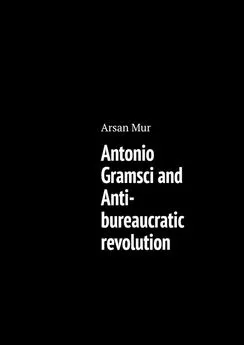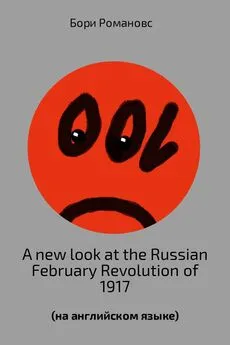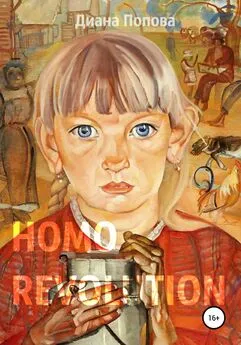Arsan Mur - Antonio Gramsci and Anti-bureaucratic revolution
- Название:Antonio Gramsci and Anti-bureaucratic revolution
- Автор:
- Жанр:
- Издательство:неизвестно
- Год:неизвестен
- ISBN:9785005308733
- Рейтинг:
- Избранное:Добавить в избранное
-
Отзывы:
-
Ваша оценка:
Arsan Mur - Antonio Gramsci and Anti-bureaucratic revolution краткое содержание
Antonio Gramsci and Anti-bureaucratic revolution - читать онлайн бесплатно ознакомительный отрывок
Интервал:
Закладка:
Antonio Gramsci and Anti-bureaucratic revolution
Arsan Mur
© Arsan Mur, 2021
ISBN 978-5-0053-0873-3
Created with Ridero smart publishing system
Content
Introduction
The social and political reality of the modern world is immanent in the process of permanent confrontation between political entities, a considerable part of which have no institutional legitimacy and carry out the intention to gain it. Speaking of countries traditionally referred to the “West”, we see this process as a crisis of the legitimacy of the dominant political institutions. Increased pressure from migrants (including in the form of terrorist attacks) and the growing need for direct military participation in conflicts led by forces that are not legitimized by the UN and often oppose the very principle of legitimacy of nation-states as a form of political domination. The process mentioned above is also clearly manifested in the Middle East, where the collapse of ideocratic dictatorships, which had the design of modern states and were former members of the UN, leads to the formation of large but not internationally legitimate political actors, carrying out a revolution not only against modern political regimes, but also against the principle itself the legitimacy of international political structures and the national state in its modern sense. Some regions and states that proved to be insufficiently resistant to opposing revolutionary processes within society become a place of permanent confrontation of illegitimate political actors, a place of permanent chaos and civil war, and successful examples of the opposition of the state to revolutionary gravitations of a part of society indicate that the political defeat of modern political structures does not predetermined, and, therefore, the state seeking to avoid revolution and its collapse, has the ability and the need to study the revolutionary processes in other countries and to study oneself, one’s society in order to prevent events that could bring down the institutional framework of the state.
Russia is a country that is also threatened by the above-described revolutionary processes carried out and coordinated by outside political actors. Such dangers are aggravated by the fact that the real life of Russian society is poorly understood, social processes that can acquire political significance often become a public fact only after sudden breakthroughs in the media environment. Therefore, there is a great need to build methods and forms of analysis of revolutionary sentiments that are suitable specifically for Russian society and the state, which, in turn, requires independent and creative work on the synthesis of classical concepts of revolution and the creation of distinctive, but adequate methods for analyzing the dangers of the revolutionary plan.
The research problem is as follows. In the presence of a definite and rather voluminous corpus of texts devoted to the study of the revolution (Goldstone, etc.), at the moment there is no high-quality academic work that reduces the methods to proportional, on the one hand, and has a strong theoretical basis, on the other hand, of labor giving a complete understanding of the specifics of studying social and political processes of such a plan. Also unknown are the qualitative analytical works that would allow the formation of adequate tools for studying the revolution in the Russian social and political context.
Object of study: a set of forms of revolutionary processes in society.
Subject of research: methodology for studying the revolutionary process.
The purpose of the study: to form an adequate toolkit and methodology for studying the revolution in the modern social and political context.
Research Objectives:
1. To study the types and forms of the revolutionary process in postmodern society.
2. To formulate the concept of Russian society as a postmodern society.
3. To study the classical theory of revolution V. Lenin, A. Gramsci.
4. Synthesize the learned concepts of revolution.
5. To study the factors of instability of Russian society.
6. To form a set of adequate methods for studying revolutionary situations for the Russian social and political context.
Research Methods: In our work, we use a secondary analysis of scientific works, deductive and inductive research methods, aimed at constructing a picture of the mosaic of the social and political life of society. We also use a comparative analysis of the concepts of revolution.
Materials used in the study: We study the classics of revolutionary and conflictological thought, military thought of the 20th century: V. Lenin, A. Gramsci, B. Smyslovsky. We also use in our work modern materials on the study of revolution, such as the work of J. Goldstone “Revolution. A very short introduction”, works by P. Turchin, other works of theoreticians of the revolution. Marxist works make it possible to determine the basic conditions for the emergence of a revolutionary situation. The concept of P. Turchin will allow us to introduce the understanding of revolution into the context of historical cycles experienced by society, the work of B. Smyslovsky “War and Politics” will allow us to form a clear and adequate idea of military logic in the revolutionary process.
In studying the revolutionary process in modern society, we study the works of R. Barthes, M. Foucault, J. Schwarzmantel, D. Matison, and other works.
The book of R. Barthes “Mythology” will allow us to form a clear idea of the role of myth in modern society, which directly leads to an understanding of the mobilization mechanisms of the revolutionary process in modern society. The works of M. Foucault give a deep idea of the essence of relations of power in modern society. “The Ideology and politics” of J. Schwarzmantel allows us to determine the role of ideology in the revolutionary mobilization of political actors, the work of D. Matison “Media Discourse” allows you to study the place of media resources, media streams in the development of revolutionary processes and their actualization.
In terms of studying the factors of instability in the life of society, we use the works of V. V. Shiller on extremism, S. Caspe’s work “Political Theology and Nation-building: General Provisions, the Russian Case” and other works.
The origins of the theory of revolution
The earliest thinker who wondered about revolutions was Aristotle. He identified the main revolutionary dangers and described how they can be avoided.
They are as follows:
1. Corruption assumes that government officials are trying to make illegal profits at the expense of a person or the public.
2. Rebellions occur when people are dishonored, and when people see others receive honors that they do not deserve. If like-minded people join the movement, the government cannot escape the crisis.
3. Revolutions occur when arrogance or disrespect is manifested by other members. Revolutionary danger arises when officials become arrogant, drunk from the power or do not pay attention to people’s problems. This leads to a deep gap in society, especially between the state and the people. Over time, people’s complaints about corrupt officials increase, which culminates in revolutions.
4. Fear is the worst enemy of human institutions. This disturbs calm and other emotions. Revolutions can arise either from fear of punishment for committing any wrong action, or from fear of the expected incorrect outcome of a case from a person who fears injustice.
5. Contempt for citizens is connected with the revolution. This contempt may be due to rules, laws, political and economic situations, social and economic order. Contempt is also associated with inequality, injustice, lack of certain privileges, etc.
6. Finally, revolutions are also the result of an imbalance in the disproportionate increase in state power, which creates a gap between the constitution and society. As a result, the constitution reflects social realities, the balances of social and economic forces.
If this balance is violated, the political order collapses and will either be changed or perish. For example, if the number of poor people increases, the state may collapse. Similarly, if there are too many rich people in government, this can lead to oligarchic rule.
Regarding political factors, issues such as electoral intrigue, carelessness, neglect of small changes, the growth of the reputation and power of a party or union of parties, lead to a deadlock and, finally, foreign invasion.
A brief explanation of these factors is as follows:
1. Manipulation of votes violates people’s faith in the constitutional process. Electoral manipulation not only destroys society, but also destroys virtue and a good life, and gives rise to new social problems, such as corruption, bribery, nepotism, favoritism, etc.
2. The foundations of the state may be destroyed due to willful negligence leading to revolutions. If rulers are careless in choosing officials, antisocial elements will undermine all politics. In such circumstances, the trivial issue of selecting suitable officials without due care is the deadliest.
3. A statesman should never neglect any small issue related to governance. If decisions are made in a hurry without considering its consequences, such actions are likely to cause a storm. It is for this reason that Aristotle stated that the need for a complete overhaul of the entire system appears when the need for small changes is ignored.
In addition to the general causes of the revolution, Aristotle also identified their specific causes in various types of states. For example, in democracies, discontent is caused by demagogues who attack the rich and incite hatred among people, and this situation leads to conflict.
Revolutions occur in the oligarchies when the masses are unpleasantly affected by officials, which leads to contention within the ruling class. Personal disputes can contribute to inciting social discord and, although this is invisible, changes in the class structure of society can imperceptibly change the ethos.
Aristotle further believed that it was not necessary for the oligarchy to become a democracy or vice versa, but they could completely turn into a completely different system. In the aristocracy, revolutions occur when the circle of rulers is unacceptably narrowed. This imbalance in the balance of various elements of state power causes a revolution.
As for monarchies and tyrannies, the revolutions, according to Aristotle, are caused by arrogance, resentment, fears, disrespect, the desire for glory, the influence of neighboring states, sexual crimes, and physical ailments.
Aristotle, to ensure security from revolutions, proposed the following ways to prevent them:
He urged the rulers to believe in the principle of “prevention is better than cure”. This principle consists primarily in the desire to ensure that rulers obey the laws even in the smallest matters. He believed that a violation, even in small amounts, sooner or later lead to complete disrespect and violation of the law. Further, if people begin to break the laws, following the example of the rulers, the entire public order will be in jeopardy.
The thinker also strongly advised the rulers to believe that they could either constantly deceive a few people, or all people for some time, but never – all people and always. An attempt to constantly deceive the whole state, according to Aristotle, will inevitably end in a revolution.
He also said that rulers should exercise due care in relation to their subjects: they should not distinguish between an officer and a commoner, between leading and non-leading, etc. To prevent a revolution, according to Aristotle, it is necessary to observe the principle of democratic equality.
Читать дальшеИнтервал:
Закладка:










